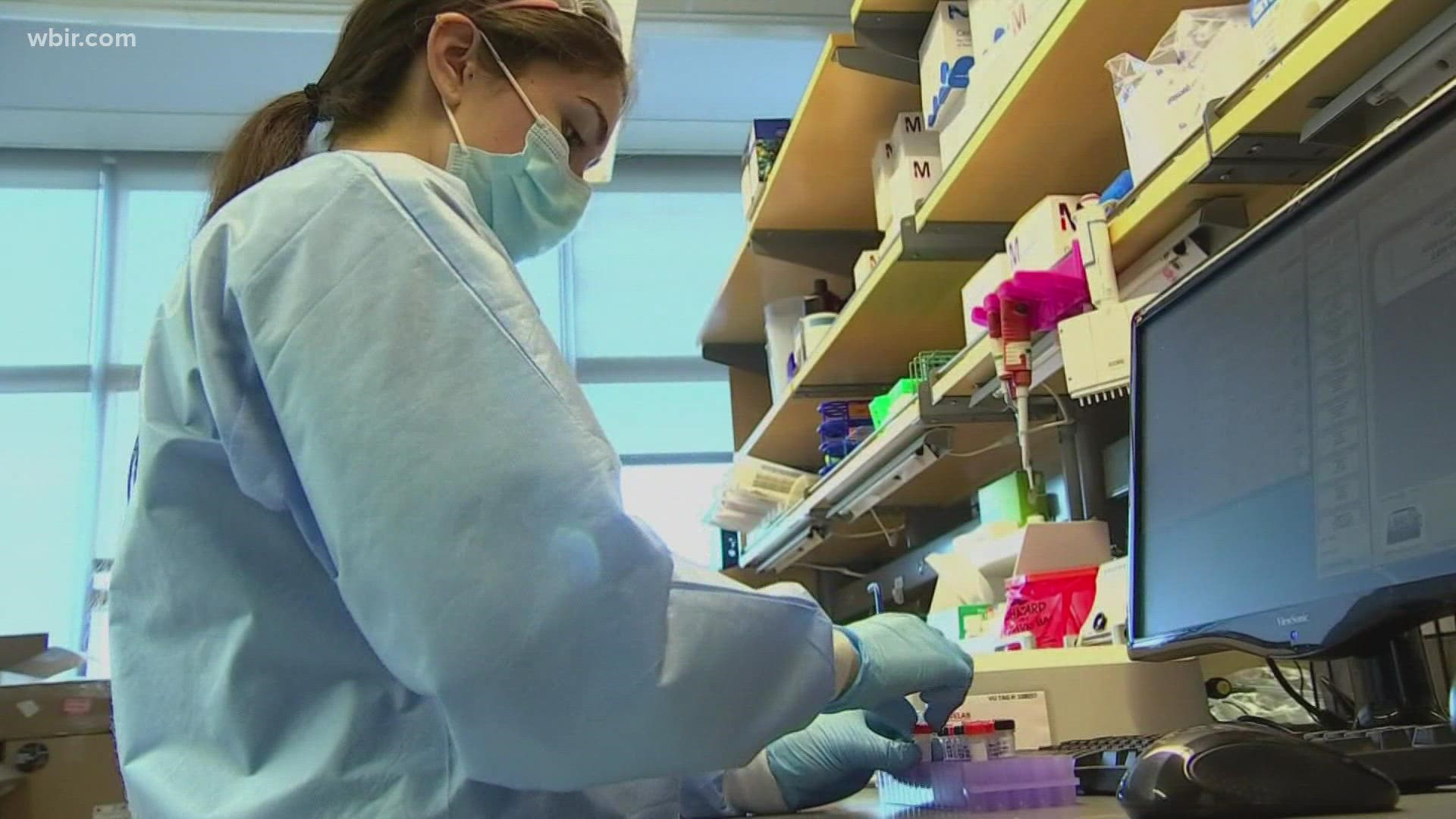TENNESSEE, USA — In a briefing on Wednesday afternoon, the Tennessee Department of Health's Dr. Lisa Piercey reported the state is starting to see decreases in the COVID-19 surge.
She said while areas around Memphis and Jackson are seeing "sustained decreases," East Tennessee is just now starting to see numbers level off.
As a result, Piercey said healthcare providers have been able to meet the demand for monoclonal antibody treatments.
The department has been able to keep supply at all 220 providers and has not had to use the prioritization criteria put in place when a national shortage was announced earlier in September.
RELATED: TN recommends prioritizing the unvaccinated, immunocompromised for monoclonal antibody treatment
"I think with our waning demand that we will continue to have adequate or maybe even a little bit extra supply," Piercey said.
She said the Department of Health and Human Services weekly allocation process should last through the fall and potentially into the winter.
Piercey also addressed booster shots for the Pfizer COVID-19 vaccine for those who meet the current criteria, clarifying the department's guidance.
According to current CDC guidance, you must have received two doses of the Pfizer vaccine at least six months before and fall in a high-risk category.
Piercey further broke down those high-risk categories into those who should get a booster and those who may get a booster.
- Should: individuals 65 and older; residents in long-term care settings; and people ages 50-64 with medical conditions such as obesity, hypertension, COPD, diabetes and heart disease
- May: individuals 18-49 years old with underlying medical conditions and individuals 18+ who are at increased risk for COVID-19 exposure due to where they work or live (health care worker, teacher, first responder, worker/resident in congregate setting)
She said the state will not be requiring documentation of these conditions and will use a "self-attestation" process instead.
Piercey also said the state will be using the same process for vaccine distribution at long term care facilities as it did during the initial vaccine rollout in January and February.
"We are not going to boost our way out of this pandemic. The single most effective way for us to end this pandemic is to get the unvaccinated vaccinated," Piercey said.

